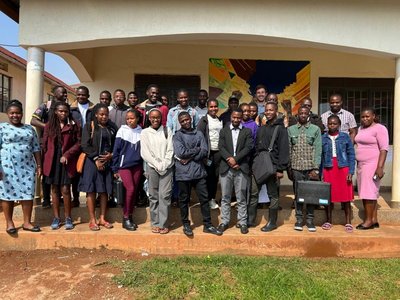

A key highlight was the official handover of new environmental monitoring equipment to Kabale University’s Department of Environmental Sciences. The tools, including an automated weather station and water quality measurement instruments, will enhance research and teaching capacities while supporting long-term environmental monitoring in the region.
The Stakeholder Inception Workshop brought together local government officials, NGOs, and students to discuss project objectives and coordinate institutional roles. Participants welcomed the initiative and shared valuable input on regional water management priorities such as wetland restoration and soil conservation. The workshop received national media coverage and helped integrate local knowledge into the project’s approach.
During a joint field visit to the Maziba and Ruhezamyenda sub-catchments, Kabale and BOKU teams tested the newly acquired equipment and identified 13 sites for continuous water quality monitoring. The data collected will provide critical insights into water quality trends and support evidence-based management of the region’s water resources.
As part of the academic exchange, BOKU hydrologist Gabriel Stecher delivered a guest lecture on “Discharge Measurement Methods – Salt Dilution” to Environmental Science students, followed by a hands-on field session. This marked the first time this practical method was taught at Kabale University, expanding the curriculum in integrated water resources management.
These joint activities underscore the strong and growing partnership between Kabale University and BOKU University, advancing research collaboration, capacity building, and sustainable water management in the Kigezi Highlands.